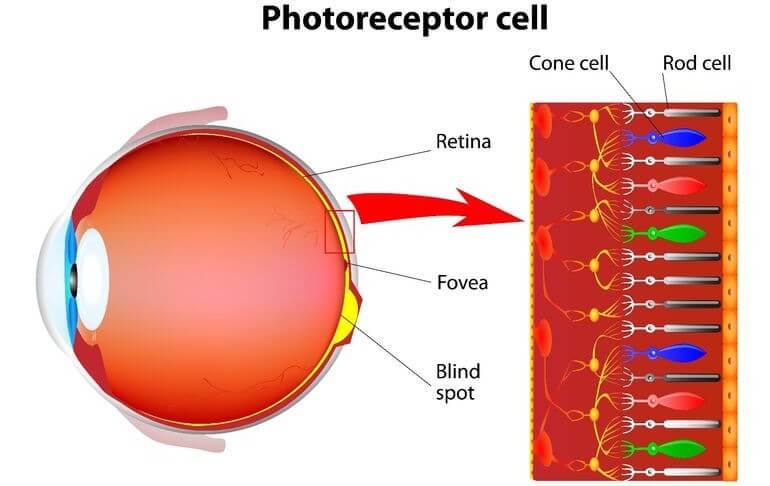- Get link
- X
- Other Apps

Millions of people around the world suffer from diseases that lead to the gradual degeneration of photosensitive cells in their eyes, which ultimately leads to complete blindness. Recently, researchers from the University of Bern and the University of Goetting have developed a way to reverse this process. In this they will be helped by a special photosensitive protein, which is able to return sight to blind people.
Retinitis pigmentosa, age-related macular degeneration, diabetic retinopathy - these are just a few of the reasons many people lose their sight. The existing methods of dealing with these diseases are aimed at slowing down or stopping processes that destroy the retina even before the moment when a person is completely blind. To do this, use a drug approach, gene therapy, or a combination of both methods. However, such treatment does not always lead to successful results, and nothing about the restoration of lost vision.
A new therapeutic approach to the treatment of blindness is called optogenetic. During treatment, a special photosensitive protein is implanted into the patient's retina, which is able to transform the surviving cells located in the lower layer of the retina into photoreceptors (the same rods and cones), after which the vision gradually returns to the person. Unlike previous methods, the therapy does not require the use of bright light, which can lead to even greater damage to the eyes.

The photosensitive chimeric protein is called Opto-mGluR6. The advantage of using this protein is that it was created on the basis of two other proteins of the retina, so the immune system will not reject it, and it is also much more resistant to discoloration and reduction in photosensitivity, from which many other proteins are used, which are used in therapy of this.
Scientists have already managed, with the help of a new therapy, to return sight to several laboratory mice suffering from retinitis pigmentosa. Rodents tolerated the recovery process very well and today have been able to return to their full-fledged "sighted life". The scientific work of scientists was published in the journal PLOS Biology, and now in line for a group of researchers clinical trials in humans. And who knows, maybe in a few years blindness will recede under the onslaught of science.
The article is based on materials .
- Get link
- X
- Other Apps
Comments
Post a Comment